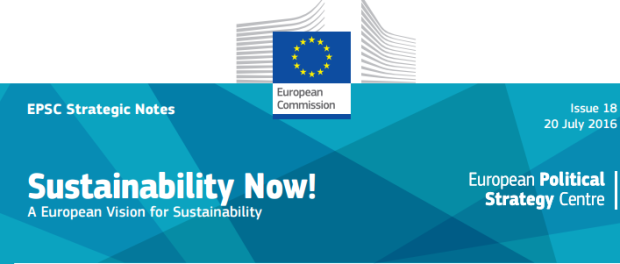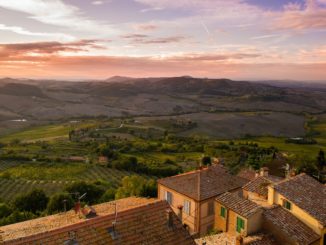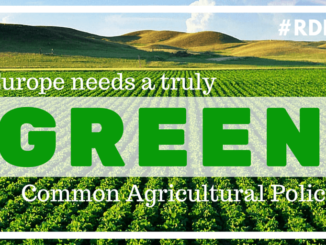A recent high level report by Karl Falkenberg stresses “agro-ecology” over “precision farming” as a way to make EU agri-food policy more sustainable.
Pressure on the two Pillar model of the Common Agriculture Policy (CAP) continues, with the publication of ‘Sustainability Now! A European Vision for Sustainability’. This report, drafted by Karl Falkenberg, suggests that CAP post 2020 should be re-framed as rural development aid with stricter environmental criteria.
The paper, which attempts to bring sustainability into the EU legislative process across all policy areas, is published by the European Political Strategy Centre. Commission President Jean-Claude Juncker established this group with the remit of offering up broad, cross-sectoral policy advice. On the EPSC, Falkenberg is a senior advisor to the Commission, having previously been a Director General of Environment.
The report notes the productivity of the current CAP, but also its negative socio-environmental impacts: “long-term trends in rural employment, farming incomes and major environmental indicators for soil quality and biodiversity remain problematic”, it states.
The moves towards monocultures and “overspecialisation” are cited as having a negative impact on both employment and the environment: instead, the paper suggests, more labour-intensive farming techniques targeted at ecosystem services – such as clean water and improved soil quality – should be encouraged.
“Agriculture potentially can offer significant employment opportunities if organised in less industrial fashion. New research tends to demonstrate that this by no means would imply a reduction in output, nor substantial price increases. Indeed, real life testing by a French agro-research Institute has shown that halving both nitrate and herbicide use has produced a 200 euro/hectare better result in grain production, mainly attributable to a larger presence of natural pollinators in a more diversified landscape. It represents a double bonus for farm income and environment.” (emphasis in original)
Organic farming and agroecology are spotlighted as positive ways to farm, with innovations in France emphasised:
“France has started an innovative regulatory framework towards an integrated use of resources and nature-based solutions, to produce better from an environmental, economic and a social point of view. This approach is based on agro-ecology which builds upon the natural synergies between plants, animals, humans and their environment. Agro-ecology brings back to farming the 3 dimensions of sustainable development: to sustain agricultural production, preserve healthy environments and support viable food and farming communities. Agro-ecology also builds upon innovation, but in an inclusive manner through e.g. social innovation and different production methods and new business models.
Agro-ecology is highly knowledge-intensive, based on techniques developed on the basis of farmers’ knowledge and experimentation. Agro-ecology is economically viable for those making the choice to transform their production methods to be in charge of the process rather than dependent upon firms producing seeds and inputs. It also contributes to fighting climate change and to improving nutrition. It deserves full attention in a debate about transforming the Common Agricultural Policy. (emphasis in original).
So-called precision farming is however critiqued:
It (precision farming) “falls short of building a more integrated farming system, which maintains a healthy soil ecosystem and a healthy work environment for farmers, who are less economically dependent on external inputs. ” (emphasis in original).
The upcoming review of the Multi-Annual Financial Framework should be used to test the fitness of CAP greening and rural development programmes, Falkenberg suggests. In this he echoes numerous NGOs with their call for a “CAP fitness check”.
Other suggestions include better support for ecosystem services via specific aid, the use of the Commission’s financial instruments green payments, and the creation of a trans-European network of green infrastructure.
More
Critique of Falkenberg report by Alan Matthews.





